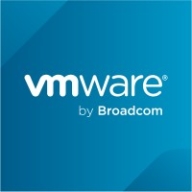


Microsoft Configuration Manager and VMware Aria Automation are key players in the system management and automation industry. Microsoft Configuration Manager is often favored for its integration within Microsoft ecosystems, while VMware Aria Automation is recognized for its robust automation capabilities in cloud environments.
Features: Microsoft Configuration Manager offers centralized control, patch management, and application deployment, which is crucial for maintaining system compliance. It integrates well with Microsoft products, allowing seamless transitions within the ecosystem. Users gain value from its reporting capabilities and its ability to manage various IT tasks from a centralized console. On the other hand, VMware Aria Automation is praised for its advanced automation features, self-service portal, and smooth integration with cloud services. This makes it suitable for complex cloud environments that require custom automation and orchestration.
Room for Improvement: Microsoft Configuration Manager could enhance its support for non-Microsoft environments and refine reporting accuracy. Its integration with current cloud offerings needs improvement, alongside reducing its high resource consumption. VMware Aria Automation faces challenges in smoother integration with multi-cloud solutions and requires a more streamlined initial deployment process. Its documentation and support for complex configurations need improvements to facilitate user adoption.
Ease of Deployment and Customer Service: Deploying Microsoft Configuration Manager can be complex, yet it benefits from extensive documentation and community support. Users find assistance readily available due to its widespread use. VMware Aria Automation requires skilled technical staff for setup due to higher deployment complexity, but users receive dedicated technical support, offering specialized assistance tailored to its niche focus.
Pricing and ROI: Microsoft Configuration Manager comes with a high cost, particularly impacting smaller businesses because of its licensing structure and dependency on other Microsoft products like SQL Server. Nevertheless, the efficiency and centralized management it provides often justify the investment. VMware Aria Automation, priced at a premium, offers a compelling feature set that can challenge budgets but yields significant ROI through enhancement of automation efficiencies.
Everything we've gained from it makes my job easier day after day, and I see value in it as an engineer.
Microsoft Intune not only saves costs by reducing the number of personnel needed but also offers a comprehensive solution for managing laptops, applications, security, individual access, and enrollment.
Importantly, when someone leaves the company, it helps protect document access on their devices.
When a support ticket is submitted, it directly reaches someone with Intune support expertise.
When I contacted Microsoft, they had the same expertise, if not more, which is phenomenal because I felt heard and my problem was solved.
Sometimes, the support provided is excellent, and the representative is knowledgeable, while other times, the service needs improvement.
Their response time and first-level support quality need improvement.
For technical support from Microsoft, I would rate them a nine.
We never had major issues to report or request support.
The scalability of Microsoft Intune is ten out of ten.
Ideally, we want to automatically segregate devices based on user properties like primary use, but currently, dynamic groups seem limited to device properties.
It supports organizations with 200 endpoints and those with more than 15,000 endpoints.
The product is suitable for our size, handling 800 devices.
We have not experienced downtime, bugs, or glitches.
It appears Microsoft Intune undergoes changes without informing customers.
Microsoft Intune has been very stable.
There were misconfigurations by our team rather than issues with the product itself.
Features like unlocking devices sometimes fail, and the support offered for other operating systems is insufficient.
There are communication issues, so you might start working with a feature without knowing if it will be deprecated six months from now.
Many third-party companies offer single-pane-of-glass reporting that shows you what your update environment looks like, how your patch is doing, application status, etc., but Intune's reporting is not intuitive.
A better command line interface for Microsoft Configuration Manager would be an additional feature I would to see in the future to make it closer to a perfect score.
I can suggest that Microsoft Configuration Manager should get the Autopilot feature because Autopilot is the main part of Intune, and nowadays everybody is using Autopilot.
It operates for both of my products, however, as a product, it is complicated to integrate and automate with other products.
Introductory professional services, like a fast-track service, were included with our E5 membership, and there have been no additional costs.
The Intune suite and add-ons, such as batch management and remote help, are costly.
It costs approximately forty euros per user per month.
The setup cost is considered sufficient.
The pricing for Microsoft Configuration Manager is okay for me.
Intune excels in configuration and compliance management for Windows 10, ensuring devices receive timely updates and adhere to organizational standards.
Dynamic groups allow us to set conditions for automatic membership, eliminating the need for user intervention or manual review and ensuring a seamless workflow.
Windows Autopatch is the most valuable because it removes the burden of patch management.
If I want to get a fetch report for anything, such as hardware-related issues or group policy-related issues, I need to fetch the report by using SCCM's scripting language and remediation part.
The most valuable features I find in Microsoft Configuration Manager are mostly patching, deploying software, deploying images, and running custom scripts.
The product valuable for deployment recovery.
It helps us automate the workflow of creating many VMs and the TensorFlow key method.
We have strong regulations for maintaining compliance and mitigating risks with this product.
| Product | Market Share (%) |
|---|---|
| Microsoft Intune | 7.4% |
| Microsoft Configuration Manager | 9.5% |
| VMware Aria Automation | 5.2% |
| Other | 77.9% |


| Company Size | Count |
|---|---|
| Small Business | 121 |
| Midsize Enterprise | 47 |
| Large Enterprise | 154 |
| Company Size | Count |
|---|---|
| Small Business | 20 |
| Midsize Enterprise | 13 |
| Large Enterprise | 64 |
| Company Size | Count |
|---|---|
| Small Business | 32 |
| Midsize Enterprise | 24 |
| Large Enterprise | 130 |
Microsoft Intune provides centralized management of mobile devices and applications, ensuring security, compliance, and productivity through integration with Microsoft services like Microsoft 365 and Azure Active Directory.
Organizations use Intune for managing mobile devices and applications, enhancing security and compliance across platforms. With features like single sign-on, conditional access, and zero-touch deployment via Autopilot, it facilitates efficient operations. Intune's scalability, easy enrollment, and capabilities such as remote wipe support diverse device management, offering robust data protection and efficient operation. Despite its features, improvement areas include reporting, compatibility with non-Microsoft devices, and better support for macOS and Linux devices.
What are the key features of Microsoft Intune?
What benefits should users look for in reviews?
In industries such as finance, healthcare, and education, Microsoft Intune is implemented to ensure secure and compliant device management. Companies leverage its capabilities to deploy security policies and manage both corporate-owned and BYOD environments, facilitating a unified approach to data protection and compliance.
Microsoft Configuration Manager streamlines IT management with features such as software deployment, patch management, and automation, centralizing operations for Windows environments. Integration with Microsoft products allows efficient oversight of workstations and servers.
Microsoft Configuration Manager provides comprehensive IT management, offering software deployment, patch management, and application pushing. Automation reduces manual tasks, ensuring consistency across systems. Centralized management enables standardized OS deployments, application updates, and configuration integrity. Integration with Microsoft products facilitates seamless operations, while hardware and software inventory, compliance reporting, and remote control functions enhance IT management. Users seek improvements in application deployment for those without deep scripting knowledge and desire better WSUS control, PowerShell and Intune integration, Linux compatibility, and user interface enhancements. Performance improvements are requested for remote user management and third-party application support.
What features enhance Microsoft Configuration Manager?Microsoft Configuration Manager is widely implemented in organizations to manage Windows workstations and servers. It is essential for deploying operating systems and applications, managing software updates, and conducting hardware and software inventories. The tool is crucial for endpoint and configuration management, ensuring compliance, and automating processes like patching and vulnerability management. Industries such as finance, healthcare, and education rely on Microsoft Configuration Manager to keep systems secure and operational, adapting it to address their specific needs and challenges in maintaining diversified IT environments.
VMware Aria Automation is a cloud management tool that allows companies to simplify their cloud experience through a modern automation platform. The solution is designed to deliver self-service clouds, multi-cloud automation with governance, and DevOps-based security and infrastructure management. It helps organizations improve IT agility, efficiency, and productivity through its various features.
VMware Aria Automation has multiple use cases that include the following:
VMware Aria Automation Features
VMware Aria Automation has various features that allow users to easily perform operations. Some of the solution's capacities include:
VMware Aria Automation Benefits
VMware Aria Automation offers its users various benefits. Some of the biggest advantages that the solution brings to companies that utilize it include:
Reviews from Real Users
Awais J., CTO/CEO at a tech services company, likes VMware Aria Automation because it saves a lot of time, provides more visibility, and has extensive automation capabilities.
An IT consultant at a government rates VMware Aria Automation highly because the product gives you flexibility to analyze and consume resources.
We monitor all Configuration Management reviews to prevent fraudulent reviews and keep review quality high. We do not post reviews by company employees or direct competitors. We validate each review for authenticity via cross-reference with LinkedIn, and personal follow-up with the reviewer when necessary.